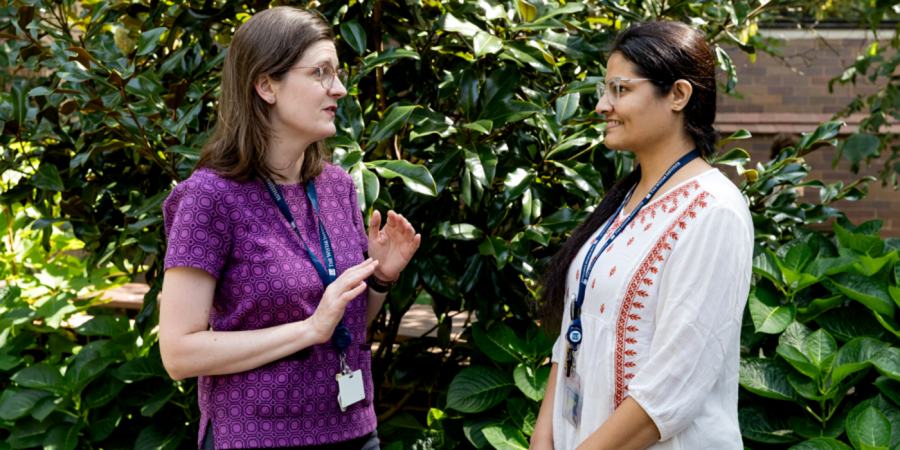
Wistar HR: Up close with Katie Lozier, Immigration Specialist
Talking Shop at Wistar
How would you describe what you do in one sentence?
When Wistar decides that we want to hire someone and the best candidate is a foreign national, I determine the best way to employ that person.
What does that process look like?
The first thing I’ll do is talk with the person about their immigration background — like whether they’ve been in the US before — because every individual situation is different. We have a number of visa programs we can use to employ people at Wistar, but there are also other immigration programs that individuals themselves might be able to leverage. So these initial conversations help me get an understanding of what the best path forward is.
While immigration statuses and regulations are specific, I find that by further understanding the role the person would be playing at Wistar — their educational background, their future plans for being in the US — those factors and others help us map a path for what’s best for Wistar as well as what’s best for the potential hire.
Does the global nature of science help you make the case to the government that international researchers should be granted work visas for Wistar?
Yes, absolutely. I am so fortunate to be able to help Wistar hire world-class talent. Our message is simple but powerful: “Wistar science leads to life-saving treatments for some of the world’s deadliest diseases and viruses.”
I like to think they look favorably on our petitions, because they usually say, “Hey, you’re right.” We should bring whoever is the most qualified person here to do that work, and if that person happens to not be a citizen or permanent resident then, you know, bring it on — that’s what I’m here for.
How did you come to join Wistar?
I had been working as an immigration advisor for international education. I did that for over 10 years, and I got to travel around the world to do direct international student recruitment and also help with immigration advising for the students.
But when the opportunity arose at Wistar, it was pure immigration, which was what I was passionate about helping people with in the first place. So I joined almost five years ago, and ever since, I’ve been able to occupy the niche I’m most passionate about.
It’s been incredibly gratifying to not only help the very best of international talent come to Wistar — and what I’ve learned about our science in the course of that has been truly mind-boggling; it always impresses me — but also to get them set up in a new country. It’s always a satisfying thing to help other people have those little victories of getting established in the US, like, “hey, I’ve got an American bank account now,” or, “I’ve figured out my electric bill.”
Is there anything in particular about dealing with immigration that can frustrate you?
The timing of how things take place within the US immigration system can be unpredictable, and often, there’s not much that we can do to move things along. So being patient and waiting is sometimes a part of the job. Also, things will happen in the world of US immigration that you just can’t anticipate, like rules changing. So that’s something I’ve had to adapt to — being prepared for just about anything that can possibly occur.
What’s something about your job most people don’t know about that you find fascinating?
I love that the field of immigration work is so highly collaborative. I get the chance to connect with other people who work in immigration roles at institutions like ours, and we field each other’s questions, consult on unusual situations — it’s really its own community, and I get to be a part of that. Every day I learn something new because someone poses an interesting question or a complicated situation comes up. And I love to learn by solving; that’s the job.